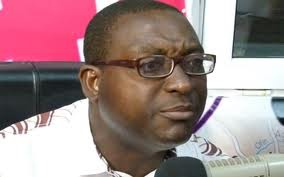
The 1992 Constitution enjoins citizens to be treated equally and fairly before the law.
And it is in this vein that Yaw Buabeng Asamoah has questioned the swift nature of the arrest and trial of Constable Nicholas Owusu Asante, who was convicted for forging the signature and withdrawing a total sum of GHc6,500, belonging to his boss, Hon. Rachel Appoh, Deputy Minister for Gender, Children and Social Protection.
Speaking on Metro TV’s ‘Good Morning Ghana’ programme, the former Deputy Communications Director of the opposition New Patriotic Party (NPP), who was commenting on the President’s call for all hands to be on deck in nation building and the fight against corruption, questioned the role of the country’s leaders in the fight against corruption, which has become a national canker.
“…What is the impact, either positively or negatively, to sacrifice to protect the nation? Is the leadership protecting the nation as he (President Mahama) seeks to tell us to do? So the call is in the right direction but I would not limit it to street crimes, taking off bulbs from streets lights. As audacious as it is, it is on another level”.
“…if a policeman steals a checkbook and he is jailed for twenty-years, after extracting Ghc800, what about the one who takes Ghc51 million? What happens?” he quizzed.
According the NPP man, President Mahama by his call, has reminded all Ghanaians of our Constitutional obligation as citizens, in accordance to Article 71 of the 1992 Constitution, but was quick to state that there is the issue of transparency and accountability in fighting corruption.
Yaw Buabeng Asamoah opined that there should be the political will to “push the rules in the right direction” backing the transparency in dealing with corruption.
“…because you have all the rules, you can have the Whistle Blowers Act, you can have everything but you would need a certain motivation to act on the rules, knowing that when you act on the rules, you would be received positively. You will not be victimized and your report of action would consequently result in change, in the things being set right,” he posited.